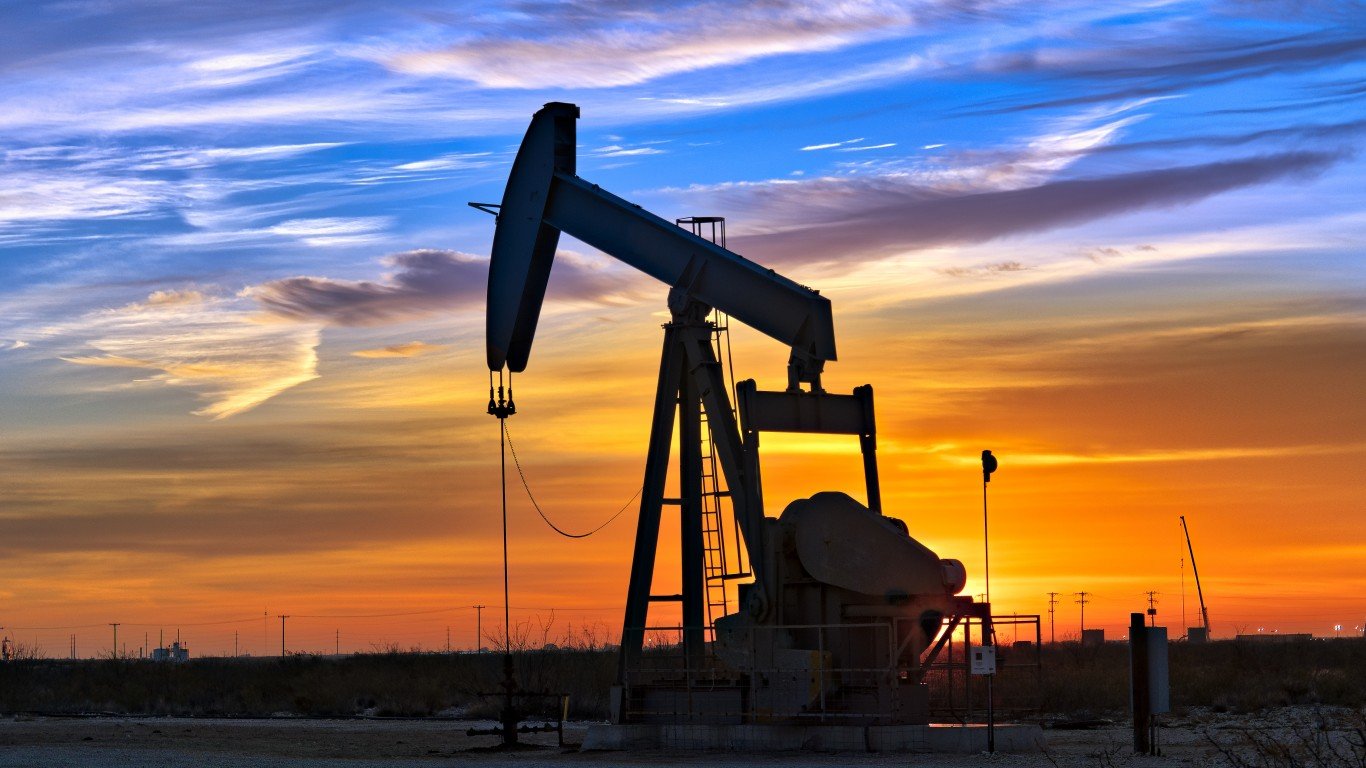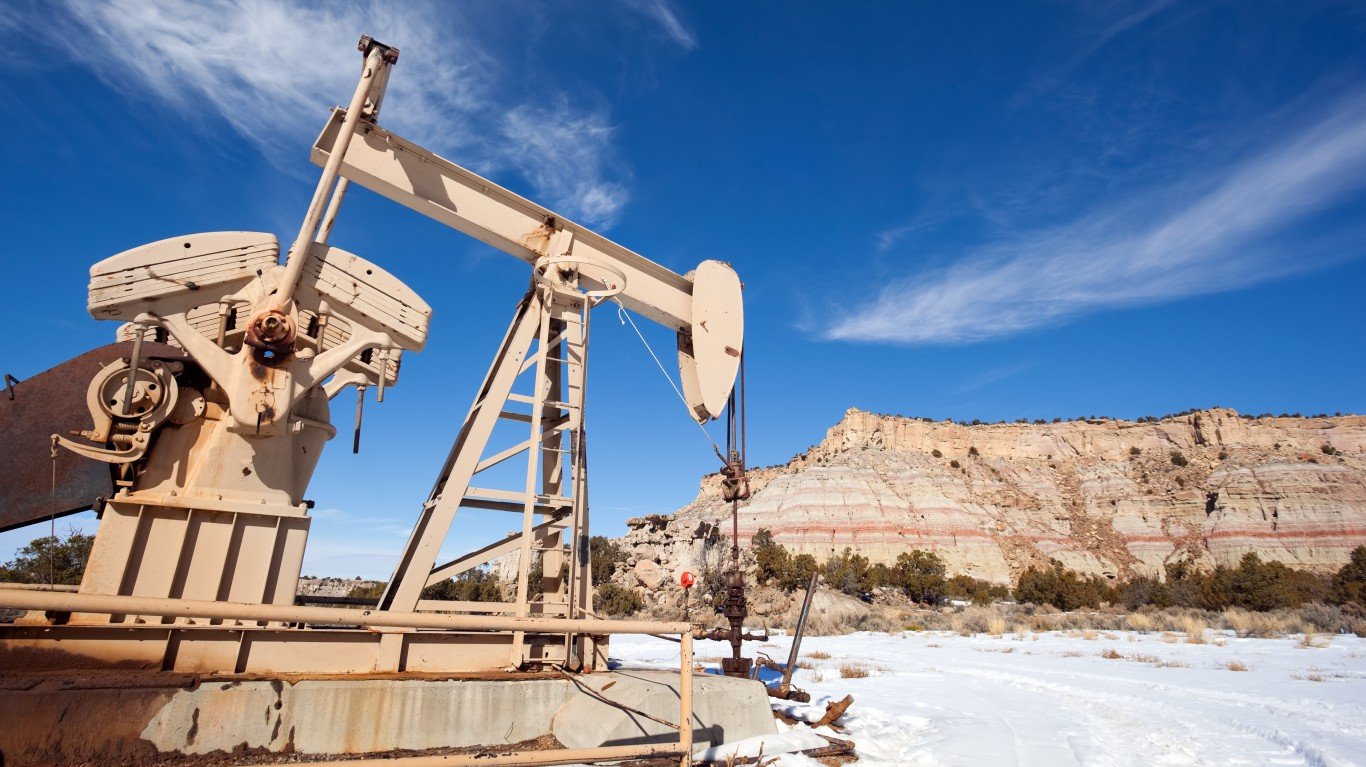

Apache Corp. (NYSE: APA) has seen many ups and downs over various oil cycles, but even without considering the higher highs in the 2008 and 2011 surges, its shares are down over 60% from about five years ago. Apache has great upside potential in the Permian Basin, but now it has started deferring its natural gas production there after localized gas prices fell down below zero.
Apache is developing a new field for natural gas in the Permian, and the company is will wait it out through the volatility (and avoid further losses with prices so low) until the Gulf Coast Express pipeline from Kinder Morgan Inc. (NYSE: KMI) starts operations later in 2019. Meanwhile, Kinder Morgan recently gave a solid enough earnings report that it raised its dividend to now be at the 5% yield mark.
According to the press release, Apache’s cryogenic processing build-out at Alpine High is running ahead of schedule, and its 2019 exit rate guidance was reiterated as being greater than 100 thousand barrels of oil equivalent per day.
While it seems hard to fathom that prices could go to less than zero, the reality is that there is more production (supply) than can be dealt with at the current time due to a lack of capacity for getting the product out. Outside of the normal supply and demand issues, this where the company is simply unable to get the product to end-user demand.
24/7 Wall St. previously outlined the metrics behind how Permian Basin natural gas prices went negative in more detail.
This move is also all about cash flow. John Christmann IV, CEO and president of Apache, addressed the issue:
As far back as two years ago, Apache foresaw the potential for gas takeaway constraints in the Permian Basin and initiated two significant mitigating actions. First, we contracted more than 1 billion cubic feet (Bcf) per day of long-term, firm takeaway capacity from the Permian Basin, on the Kinder Morgan-operated Gulf Coast Express and Permian Highway pipeline projects. Gulf Coast Express is expected to be in service later this year, and Permian Highway is expected to be in service later in 2020. At such time, Apache will be selling the vast majority of its Permian gas at a variety of Gulf Coast price points. Second, to address the pricing risk prior to these pipes coming into service, we entered into a series of basis swaps on a significant portion of our expected Permian Basin gas production through the middle of 2019. These swaps significantly mitigate the impact of current Waha pricing.
Christmann is anticipating relatively wide and volatile natural gas price differentials in the Permian Basin until that Gulf Coast Express pipeline enters service. He also pointed out that production deferrals of this sort will improve the company’s financial performance even with near-term volume issues being considered. He further said:
We will closely monitor daily pricing and return our gas to sales when it is profitable to do so. We are carefully managing these actions so there is no adverse impact on long-term wellbore integrity or reservoir productivity and look forward to returning this production to market as soon as practical.
Altus Midstream Co. (NASDAQ: ALTM) was also affected by the news. The Apache release indicated that Altus will update its 2019 gathering and processing volumes when Apache has more clarity on the potential duration and magnitude of future production deferrals. Apache did note that the company is assisting Altus in managing its costs and the services it provides directly to Altus. Altus shares were down about 3.5% at $5.22 on the news, but Apache indicated that there should be no change is expected to Altus’s 2019 EBITDA guidance range at the current time.
Apache shares were last seen trading down 2% at $36.29, in a 52-week trading range of $24.56 to $50.03.
Thank you for reading! Have some feedback for us?
Contact the 24/7 Wall St. editorial team.
 24/7 Wall St.
24/7 Wall St.

